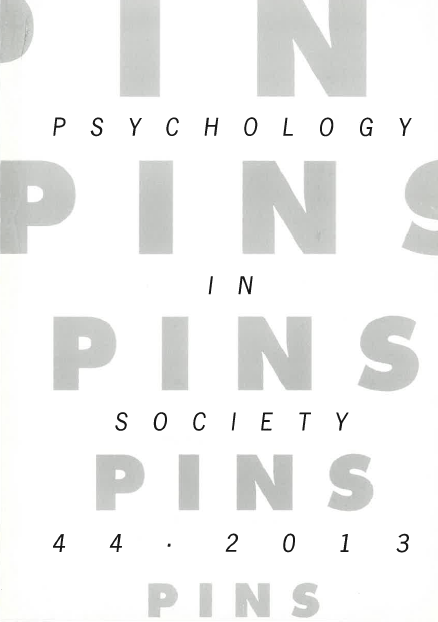USING APPRECIATIVE INQUIRY (AI) TO EVALUATE AN EDUCATION SUPPORT NGO IN SOWETO
DOI:
https://doi.org/10.17159//2309-8708/2013/n44a4Keywords:
Appreciative Inquiry (AI), research process, South African education, non governmental organisationsAbstract
The purpose of this paper is to discuss the application of the Appreciative Inquiry (AI) approach while evaluating an emerging Non Governmental Organisation (NGO) in Soweto, South Africa. The AI approach was originally introduced as an organisational development tool intended to shift the focus from deficit-based evaluation to an appreciative stance that considered the organisation when it functioned at its peak. The use of this approach was motivated by the belief that it would provide emerging NGOs with an acknowledged method of implementing their development agendas in the face of donor or governmental organisational resistance. While the AI approach intends to provide a broad platform for stakeholder interaction, the experience of this study was that it requires a significant amount of political resources to include stakeholders from outside the organisation to participate actively. Our experience of the AI approach was that it seems to be difficult to implement in an environment where there are low levels of trust and cohesion among the stakeholders. The paper concludes with suggestions
for researchers, especially novice researchers, entering the field with the intention of utilising AI in the Soweto context.
Downloads
Downloads
Published
How to Cite
Issue
Section
License
This journal is an open access journal, and the authors' and journal should be properly acknowledged, when works are cited.
Authors may use the publishers version for teaching purposes, in books, theses, dissertations, conferences and conference papers.
A copy of the authors’ publishers version may also be hosted on the following websites:
- Non-commercial personal homepage or blog.
- Institutional webpage.
- Authors Institutional Repository.
The following notice should accompany such a posting on the website: “This is an electronic version of an article published in PINS, Volume XXX, number XXX, pages XXX–XXX”, DOI. Authors should also supply a hyperlink to the original paper or indicate where the original paper (http://www.journals.ac.za/index.php/pins) may be found.
Authors publishers version, affiliated with the Stellenbosch University will be automatically deposited in the University’s’ Institutional Repository SUNScholar.
Articles as a whole, may not be re-published with another journal.
The copyright of the article(s) lies with the author(s).
The copyright of the journal lies with PINS-psychology in Society.
The following license applies:
Attribution CC BY-NC-ND 4.0 - https://creativecommons.org/licenses/by-nc-nd/4.0/

